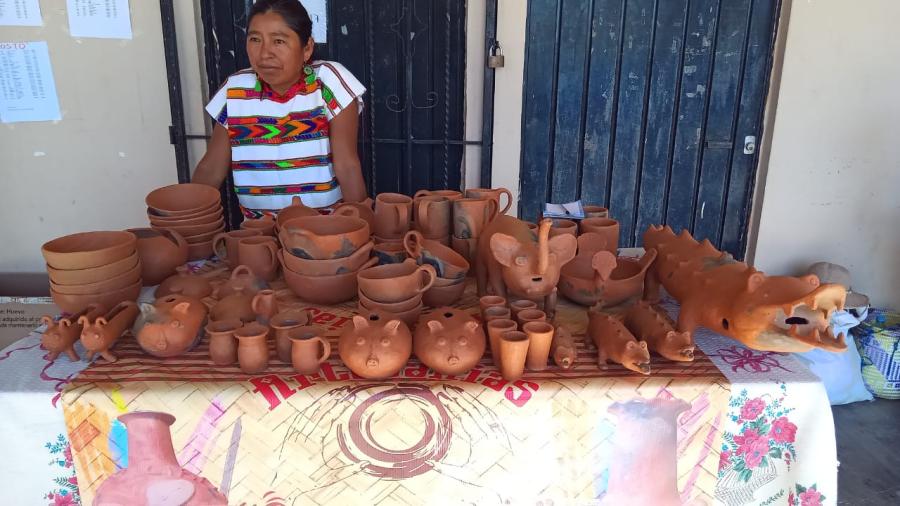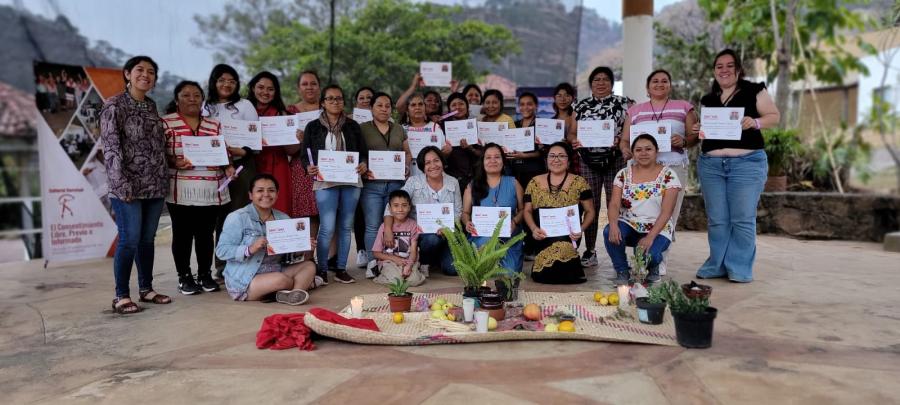Chiapas is one of Mexico's poorest states and has the country's highest concentration of indigenous people. Historically, indigenous peoples have been marginalized in their pursuit of land, resources, and capital. The Mexican government's decision in 1992 to halt land reform and strip Article 27 of the Constitution paved the way for NAFTA and had detrimental effects on the small farmer in Chiapas. The changes in Article 27 effectively removed protections on communal and indigenous lands and permitted their privatization and sale.
As George Collier points out in his book Basta: Land & the Zapatista Rebellion in Chiapas, "the repeal of land reform legislation robbed many peasants not just of the possibility of gaining a piece of land, but, quite simply, of hope." Subcommandante Marcos, spokesperson for the Zapatistas, identified the government's action as a key factor in the rebels' decision to take up arms in 1994, stating in an interview that the Mexican government "really screwed us, now that they destroyed Article 27...We and our families have been sold down the river."
Indigenous Initiatives
The concerns expressed by the Zapatistas are not new to Chiapas. As their name suggests, the movement is consciously linked with a struggle still strongly identified with Emiliano Zapata, the son of indigenous campesinos and one of the most powerful leaders in the Mexican Revolution. The Zapatistas echo Zapata's call for the recognition of the traditional Indian pattern of communal land holding known as the ejido, land redistribution from large estates to small farmers, and the organization of community-controlled cooperatives.
The Zapatistas are also linked to movements that grew out of the Indigenous Congress of 1974, which took place in San Cristóbal de las Casas in the highlands of Chiapas. Organized as a celebration of the birth of Fray Bartolomé de las Casas, the 16th Century champion of Indian rights, the Congress served as a forum for indigenous concerns. The statement that emerged from the gathering focused on issues such as land distribution, lack of health care and education, and low wages. The document also emphasized the historic inequities of trade: "peasants and Indians work hard but are always exploited...For us, merchants and middlemen are like a plague of locusts."
Twenty years later, the Zapatistas echoed these concerns in the early days of the rebellion with demands for land, education and health services, "dignified and fairly paid work...fair prices for our farm products and markets where we can freely sell and buy without being at the mercy of coyotes" (the term "coyote" is used by campesinos throughout Latin America for the middlemen that purchase their products at very low prices, often locking them in a cycle of debt).
Northern Solidarity
In January, 1997, I traveled to Chiapas on a Fair Trade Consumer Education Tour co-sponsored by Equal Exchange, the fair trade coffee co-op, and Global Exchange, a non-profit education and action group dedicated to building people-to-people links between North and South. The goal of the tour was to build awareness of the situation in Chiapas and the role that fair trade plays in supporting indigenous initiatives for social justice.
The fair trade movement, while very strong m Europe, is still in its infancy in the U.S. As a response to the historical inequities of trade between North and South America, or the first and third worlds, fair trade attempts to restructure the rules of international commerce so that producers in the developing world receive a fair price for their products and gain more control over markets. Coffee has been a major focus of the movement because it is one of the most heavily traded commodities in the world and much of it is produced by small-scale farmers who have traditionally been isolated from the market.
As part of the tour, we visited La Unión Majomut, Equal Exchange's trading partner for organic Mexican coffees. Majomut, a campesino organization comprised of approximately 1,200 members in 17 Tzotzil and Tzeltal Indian communities, was founded in 1983 as a "Union of Ejidos and Communities" to build economic alternatives for indigenous coffee farmers in the highlands. Based in San Cristóbal, Majomut maintains a technical staff of ten people and a network of community promoters to assist its members in the production, processing, and marketing of coffee. Majomut is also actively involved on a regional level, working with organizations like Campesino a Campesino (Farmer to Farmer), a network of small farmers' associations that assist co-ops across Central America in organic production and certification, soil conservation, and building links to alternative markets in the North.
The Role of Fair Trade
In Chiapas and throughout the third world, organizations like Majomut have become vital to indigenous and campesino efforts to retain their lands and build locally-controlled development initiatives. In the North, fair trade organizations (FTOs) such as Equal Exchange in the U.S. and Cafédirect in England link these farmers to consumers. Through these FTOs, the farmers are able to sell their coffee directly, rather than through middlemen, and receive a better price for their beans. Just as important, they are able to strengthen their own cooperative organizations which are democratic, independent from the government, and provide a sustainable economic base for their communities. The co-ops are also dedicated to the equitable distribution of income and often provide services that are otherwise unavailable, such as credit, training programs, health care, and education.
The standards of fair trade provide a framework that ensures the economic benefits of the coffee trade reach the people that actually grow the beans for our morning cup. As part of this movement, Equal Exchange is committed to paying a fair price to the farmer, including a guaranteed minimum price when market prices are low; purchasing directly from democratically organized cooperatives; providing advance credit to farmers; encouraging ecologically sustainable farming practices; and developing long-term trade partnerships. In addition to these standards, Equal Exchange is itself organized as a worker-owned co-op, creating an international cooperative network.
While this model is very effective at bringing direct benefits to farmers in Mexico and other countries, it is still on a small scale compared to the conventional coffee trade. For cooperatives like Majomut to survive and grow, they must find markets for their coffee. For fair trade to reach more farmers in the third world, consumers must demand fairly-traded products where they shop.
As the leading source of foreign exchange for Latin America and the Caribbean, coffee has an immense impact on the people producing it. Historically, this impact has been characterized by immense inequalities in the distribution of wealth and resources, environmental degradation, and the exploitation of workers. While these issues were an important part of the solidarity movements of the 1980s, they have come into focus again in the 1990s with the growing public attention on corporate globalization, sweatshop labor, and international solidarity.
Because of its economic importance and that so much of it is grown by small-scale farmers, coffee also offers one of the most promising avenues for bringing about positive change in Chiapas and throughout the third world. U.S. coffee drinkers consume about one-third of the world's coffee, and therefore play a major role in this system. Each cup that we drink is a vote in the way it is produced, traded, and sold. The fair trade movement offers a way to redirect our everyday choices as a positive response to the exploitation and inequities of global commerce. In choosing fairly traded products, consumers become part of an international effort to create a more just system of trade for an increasingly interconnected world.
Article copyright Cultural Survival, Inc.



